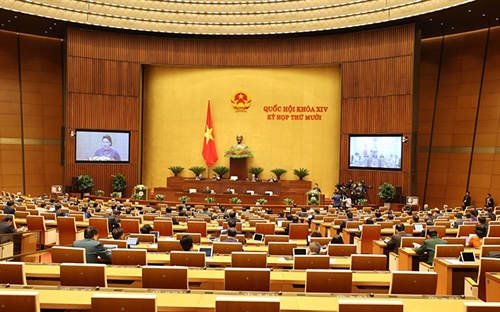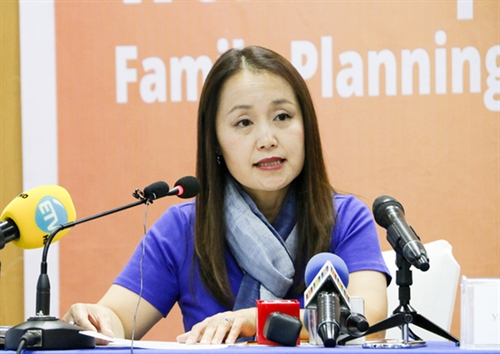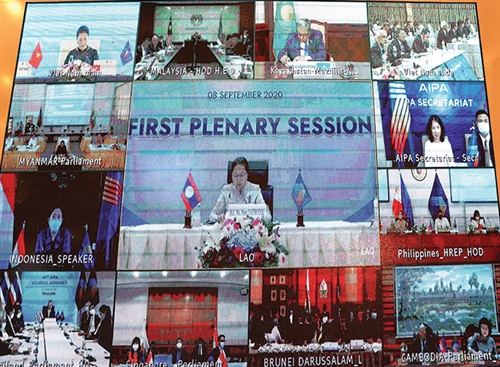 |
On November 24, a Government’s conference on law building, improvement and implementation was held. On this occasion, Chairman of the National Assembly Committee for Legal Affairs Hoang Thanh Tung granted an interview to the Online Newspaper of the Government to share his experience on how to improve quality and ensure progress of draft legal documents, in which he believes greater attention should be paid to the responsibility of ministers.
What do you think about the quality and formulation and completion progress of regulations in these years?
With efforts made by the National Assembly (NA) agencies, Government and entire political system in the building and improvement of laws over the years, the country has so far established a basically complete legal system, with the quality of legal documents being increasingly improved.
Laws, ordinances and resolutions issued by the NA and NA Standing Committee have basically met the criteria of consistency, unification, feasibility, publicity and transparency of the legal system; and effectively dealt with complicated issues arising during the development process. This has created an important legal basis for the building and improvement of a law-ruled socialist state, socialist-oriented market economic institutions and policies on social security, national defense and security assurance, administrative and judicial reforms, human rights and citizens’ rights and proactive international integration, thus helping improve the performance of agencies and organizations in the entire political system and bringing a new look to the nation’s development.
There has been a significant increase in the number of legal documents with specific provisions directly regulating social relations, thereby reducing detailing provisions and documents and speeding up the translation of regulations into life, and improving effectiveness of the state and social management as well as the people’s living conditions.
However, there remain not a few drawbacks in the law-building work, such as low stability and predictability of a number of legal documents which therefore require repeated revisions, especially those concerning the economic and financial sectors. For instance, the 2014 Investment Law had to undergo five revisions (in 2015, 2016, 2017, 2018 and 2019) and a comprehensive revision in 2020, while the 2014 Construction Law was amended four times in 2016, 2018, 2019 and 2020.
The consistency, uniformity and feasibility of a number of provisions have not yet been ensured throughout the course of implementation, thus leading to statutory repetition and even contradiction. The legal system’s adaptability to rapid changes of real life remains limited. Not a few shortcomings have been detected but remained unaddressed for a long time.
Since many legal documents detailing current laws and ordinances have not yet been enacted in time, thus causing delayed implementation of such laws and ordinances in practice, greater attention from all levels, sectors and the entire political system should be paid to the formulation and improvement of laws and regulations in the coming time.
What should be done to raise effectiveness and quality of law-building work in the coming time?
Over the recent years, renovation has been made in the lawmaking work with remarkable achievements thanks to the determination, efforts and joint actions of the agencies of the National Assembly, the Government, ministries, sectors, localities and other related agencies and organizations in the political system, particularly dedicated cadres and civil servants.
However, in order to further promote positive results achieved and address problems and limitations to meet higher and higher requirements on improvement of institutions and laws, and more effectively serve the national construction and defense in the new situation, greater attention should be paid to the following issues:
Spending adequate attention to the lawmaking work and at the same time enhancing discipline and order and ensuring proper and substantial performance of all steps in the process of formulation of legal documents, especially review of law implementation and assessment of policy impacts; regularly reviewing issued documents in order to detect and promptly address differences between documents currently in force and those expected to be issued, thus avoiding contradiction or statutory repetition; organizing the collection, giving and assimilation of opinions on draft documents; and mobilizing the participation of experts and scientists in a practical manner.
Particularly, the Law Amending a Number of Articles of the 2015 Law on Promulgation of Legal Documents, which will come into force on January 1, 2021, contain new provisions on dossiers, procedures and responsibilities of agencies for all stages of the lawmaking process, from drafting, appraisal, verification to examination and passage. Agencies should thoroughly grasp and fully and seriously carry out necessary stages to improve the lawmaking quality in the coming time.
Regarding proposed adjustments to lawmaking programs, the level, priority order and consistency of policies with draft documents included in such programs should be carefully considered; only draft documents which are really urgent may be proposed to be added to the programs while dossiers and procedures must comply with the Law on Promulgation of Legal Documents; and proposals on program supplementation just ahead the NA’s sessions should be avoided.
Intensifying coordination among agencies, especially between agencies in charge of policy proposals and drafting and related ministries and agencies, in order to create consensus and unanimity from the proposal and drafting stages. Upon the consideration of draft documents, the Government should allocate sufficient time for discussion of policy issues and major issues of the draft documents, especially issues on which ministries and sectors have divergent opinions; and ensuring consensus and unanimity among government-attached agencies on contents of draft documents before they are submitted to the NA or NA Standing Committee.
Intensifying the application of advances of information technology and Industry 4.0 to innovation and improvement of the law-building process in order to save time for and improve quality of analysis, forecasting, synthesis and evaluation of information and make constructive criticisms on policies.
Paying more attention to raising capacity of advisory civil servants engaged in lawmaking work; reforming the financial mechanism, promptly allocating sufficient funds for lawmaking activities, from study and proposal to promulgation and implementation of regulations, and considering spending on lawmaking as spending on development investment, which must be fully included in annual budget estimates and decided by competent agencies in accordance with the law on the state budget.
Can you suggest some solutions for the Government to further improve quality and ensure the progress of formulation and finalization of draft documents in lawmaking programs?
I highly appreciate efforts and determination of the Government and Prime Minister in direction and administration work, in which drastic solutions have been devised to ensure order and discipline of the law-building work, complete institutions of ministries and sectors, and improve quality of the formulation and implementation of annual law- and ordinance-making programs of the NA as well as quality of draft documents submitted by the Government.
In my view, first of all, the Government needs to come up with solutions to further enhance and attach personal responsibility of ministers to every single draft law or ordinance that they are assigned to prepare. It must be ensured that agencies fully and seriously perform necessary jobs for making proposals on inclusion of draft documents in the programs and preparing drafts, particularly in review of practical experiences, proposal of policies, assessment of impacts, collection and assimilation of opinions from agencies, organizations, experts, scientists and people directly affected by legal documents to be issued.
Drafting committees and editorial teams should adopt a mechanism to ensure their regular operations for giving adequate comments on contents of draft documents before they are submitted to the Government. All these activities should be carried out in a practical manner.
The Ministry of Justice should continue proposing to the Government effective solutions to strengthen the contingent of civil servants engaged in lawmaking work of ministries and sectors, with the core being legal staffs, and ensuring sufficient funding for lawmaking work and law implementation.
It is necessary to improve quality of appraisal, advise on and propose solutions to address important issues in draft laws on which opinions remain divergent. The Government should continue holding specialized sessions on lawmaking work, spending more time at monthly meetings to consider and comment on draft laws, discussing and deciding on controversial issues and issues raised through the Ministry of Justice’s appraisal.
The above-mentioned solutions will contribute to improving quality of draft laws, limiting the incorporation of interests of ministries and sectors in the preparation of legal documents, thus ensuring that laws are enacted to meet practical needs of life, respond to development requirements and guarantee the State’s interests and lawful rights and interests of organizations and individuals.- (VLLF)









